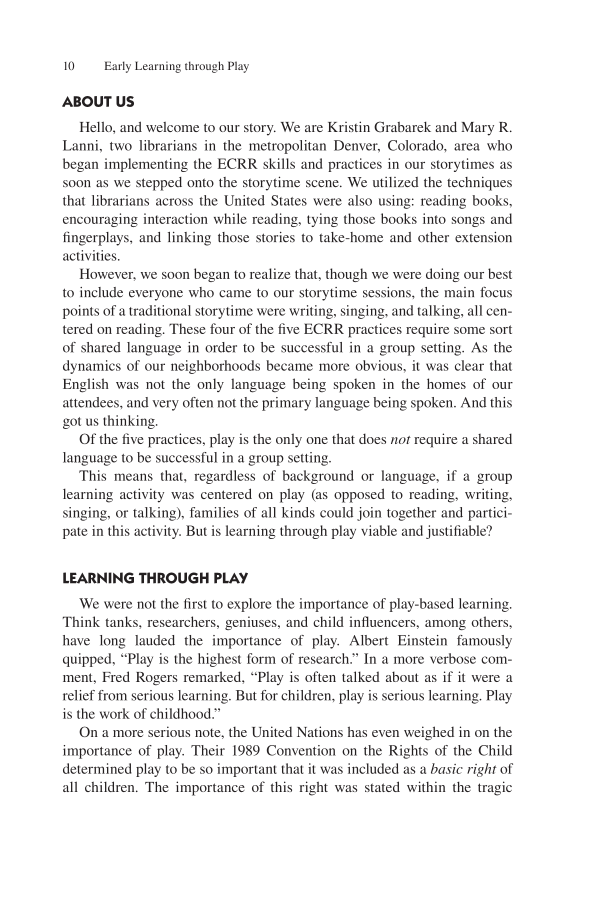10 Early Learning through Play ABOUT US Hello, and welcome to our story. We are Kristin Grabarek and Mary R. Lanni, two librarians in the metropolitan Denver, Colorado, area who began implementing the ECRR skills and practices in our storytimes as soon as we stepped onto the storytime scene. We utilized the techniques that librarians across the United States were also using: reading books, encouraging interaction while reading, tying those books into songs and fingerplays, and linking those stories to take-home and other extension activities. However, we soon began to realize that, though we were doing our best to include everyone who came to our storytime sessions, the main focus points of a traditional storytime were writing, singing, and talking, all cen- tered on reading. These four of the five ECRR practices require some sort of shared language in order to be successful in a group setting. As the dynamics of our neighborhoods became more obvious, it was clear that English was not the only language being spoken in the homes of our attendees, and very often not the primary language being spoken. And this got us thinking. Of the five practices, play is the only one that does not require a shared language to be successful in a group setting. This means that, regardless of background or language, if a group learning activity was centered on play (as opposed to reading, writing, singing, or talking), families of all kinds could join together and partici- pate in this activity. But is learning through play viable and justifiable? LEARNING THROUGH PLAY We were not the first to explore the importance of play-based learning. Think tanks, researchers, geniuses, and child influencers, among others, have long lauded the importance of play. Albert Einstein famously quipped, “Play is the highest form of research.” In a more verbose com- ment, Fred Rogers remarked, “Play is often talked about as if it were a relief from serious learning. But for children, play is serious learning. Play is the work of childhood.” On a more serious note, the United Nations has even weighed in on the importance of play. Their 1989 Convention on the Rights of the Child determined play to be so important that it was included as a basic right of all children. The importance of this right was stated within the tragic
Document Details My Account Print multiple pages
Print
You have printed 0 times in the last 24 hours.
Your print count will reset on at .
You may print 0 more time(s) before then.
You may print a maximum of 0 pages at a time.




















































































































































































